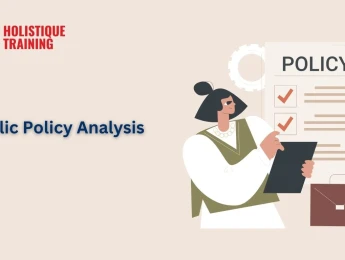- Table of Contents
- The Inspiration Behind This Blog Post: Insights from "The Psychology of Money"
- How Does Psychology Relate to Money?
- 1. Cognitive Biases
- 2. Emotions and Financial Decision-Making
- 3. Social Influences and Norms
- 4. Mental Accounting
- 5. Long-term vs. Short-term Thinking
- Why Is It Important to Study Psychology When It Comes to Money?
- 1. Improved Financial Decision-Making
- 2. Enhanced Financial Literacy
- 3. Better Emotional Management
- 4. Promotion of Positive Financial Habits
- 5. Understanding Social Influences
- 6. Encouraging Empathy in Financial Interactions
- 7. Navigating Economic Behaviours
- What Is Behavioural Finance?
- How to Hone Your Skills in Behavioural Finance
- 1. Educate Yourself on Behavioural Finance Principles
- 2. Practice Self-Awareness and Reflection
- 3. Develop Analytical Skills
- 4. Engage in Behavioural Finance Communities
- 5. Implement Behavioural Finance Strategies in Your Financial Planning
- 6. Stay Informed About Behavioural Finance Research
- The Challenges of Behavioural Finance & How to Overcome Them
- Awareness vs. Action :
- Overcoming Impulsivity :
- Social Influences :
- Cognitive Dissonance :
- Navigating Market Volatility :
- Conclusion
Introduction
Money is more than just a medium of exchange; it embodies our beliefs, experiences, and emotions. Our relationship with money can significantly influence our lives, shaping our decisions and behaviours. This blog post delves into the concept of the psychology of money, inspired by Morgan Housel's insightful book, "The Psychology of Money." Through this exploration, we will uncover how psychological factors impact our financial decisions and why understanding these elements is crucial for achieving financial well-being.
Morgan Housel’s work illuminates the intricate dynamics between psychology and finance, offering a profound understanding of how our minds work in relation to money. His key messages resonate deeply, prompting individuals to reflect on their beliefs and actions regarding wealth accumulation. By examining how we think about money, we can better understand our financial behaviours and the underlying motivations driving our decisions.
The Inspiration Behind This Blog Post: Insights from "The Psychology of Money"
Morgan Housel’s "The Psychology of Money" presents an enlightening perspective on finance. Through compelling stories and relatable anecdotes, Housel illustrates that the way we think about money is often more important than the numerical calculations and financial strategies we employ. He emphasises that our unique experiences, emotions, and backgrounds shape our attitudes toward wealth.
One key takeaway from Housel’s work is that financial success isn’t solely about intelligence or analytical prowess. Instead, it hinges on our ability to navigate emotions, manage risks, and maintain a long-term perspective. Housel argues that understanding our own psychology can lead to more informed and rational financial decisions. By unpacking the psychological aspects of money, we can better align our behaviours with our financial goals.
How Does Psychology Relate to Money?
Psychology and money are deeply rooted in how individuals perceive, value, and manage their financial resources. Money is not merely a transaction tool; it carries significant emotional weight and personal meaning. This connection influences our behaviours and decisions in various ways, encompassing a spectrum of psychological concepts that shape our financial lives. For example,studies show that many individuals with mental health issues indicate that their spending habits and financial decision-making abilities undergo notable changes during periods of poor mental health. Let’s explore this relation further:
1. Cognitive Biases
Cognitive biases are systematic patterns of deviation from norm or rationality in judgement, which can significantly impact financial decision-making. Understanding these biases is essential to comprehend how psychology influences our relationship with money:
- Overconfidence Bias: Individuals often overestimate their knowledge and ability to predict financial markets. This bias can lead to excessive trading, high-risk investments, or ignoring sound advice. For example, many investors may believe they can outperform the market, leading them to take unnecessary risks that result in financial losses.
- Anchoring Effect: This bias occurs when individuals rely too heavily on the first piece of information they encounter when making decisions. In finance, this can manifest in various ways, such as basing investment decisions on the initial price of a stock rather than its current value. This can hinder objective analysis and lead to poor financial outcomes.
- Confirmation Bias: This bias leads individuals to favour information that confirms their preexisting beliefs while ignoring contradictory evidence. In the context of investing, an investor might only seek out positive news about a company they have invested in while dismissing negative reports, potentially resulting in significant financial setbacks.
Cognitive Bias | Description | Impact on Financial Decisions |
Loss Aversion | Fear of losing money outweighs potential gains. | Leads to risk-averse behaviour and missed opportunities. |
Overconfidence | Excessive belief in one's own financial abilities. | Results in poor investment choices and higher risk-taking. |
Anchoring | Relying too heavily on the first piece of information. | Influences judgments about value and pricing decisions. |
Herd Behavior | Following the actions of others in financial choices. | Can lead to market bubbles and irrational investments. |
Mental Accounting | Categorising money into different mental "buckets." | Affects spending behaviour and budgeting practices. |
Table: Comparison of the Different Cognitive Biases
2. Emotions and Financial Decision-Making
Emotions significantly influence our financial choices, often overriding rational thought. Emotional responses can lead to impulsive actions that may not align with our long-term goals:
- Fear and Anxiety: These emotions can trigger defensive behaviours, such as avoiding investments during market downturns or cashing out during periods of volatility. Fear of loss can prevent individuals from taking calculated risks necessary for growth, leading to missed opportunities.
- Greed and Euphoria: Conversely, feelings of greed can drive excessive risk-taking, particularly during market booms. When markets rise, the euphoria of potential gains may lead individuals to invest in risky assets without proper due diligence, often resulting in severe losses when the market corrects.
- Guilt and Shame: Financial decisions can also evoke feelings of guilt or shame, particularly related to spending behaviours. For instance, individuals may experience guilt after an impulse purchase, leading to restrictive spending in the future that could impact their overall quality of life.
3. Social Influences and Norms
Our financial behaviours are also shaped by the social context in which we operate. Social influences can create a significant impact on our perceptions and actions regarding money:
- Peer Pressure: The desire to conform to social norms can lead to overspending or investing in ways that may not align with one’s values or financial goals. For example, individuals might feel pressured to keep up with their peers’ lifestyles, leading to debt accumulation or financial strain.
- Cultural Factors: Different cultures have varying attitudes toward money, savings, and investment. For instance, some cultures may prioritise saving and frugality, while others may emphasise consumption and present enjoyment. These cultural beliefs can significantly influence individual financial behaviours and decision-making processes.
- Family Dynamics: Our upbringing and family experiences are critical in shaping our attitudes toward money. Families often instil beliefs about wealth, spending, and saving that can persist into adulthood. Understanding these dynamics can help individuals identify inherited beliefs that may hinder their financial well-being.
4. Mental Accounting
Mental accounting refers to the cognitive process of categorising and evaluating their financial resources. This practice often leads to irrational financial decisions:
- Categorisation of Funds: People tend to assign different values to money based on its source. For example, a bonus or gift may be viewed as "found money," leading individuals to spend it more freely rather than considering it part of their overall financial picture. This can result in financial strain or missed opportunities for investment.
- Budgeting and Spending: Mental accounting can influence budgeting decisions, where individuals allocate funds to specific categories (e.g., groceries, entertainment) without considering the overall impact on their financial health. This compartmentalisation can prevent individuals from seeing the bigger picture, leading to inefficiencies in financial management.
5. Long-term vs. Short-term Thinking
Psychology also affects how individuals perceive time and their financial goals. The tendency to focus on immediate rewards rather than long-term benefits can be detrimental:
- Present Bias: Many people exhibit present bias, where immediate gratification outweighs the importance of future gains. This bias can lead to overspending and under-saving, as individuals prioritise current enjoyment over long-term financial stability.
- Delayed Gratification: Conversely, delaying gratification—putting off immediate rewards for larger, future benefits—is a critical skill in financial success. Understanding this psychological aspect can empower individuals to make more strategic financial choices, such as retirement savings or investing in education.
In summary, the intricate relationship between psychology and money reveals that numerical calculations do not merely drive our financial behaviours but are profoundly influenced by emotions, biases, social contexts, and personal beliefs. Recognising these psychological factors can empower individuals to develop healthier financial habits, make informed decisions, and cultivate a more positive relationship with money.
By understanding how our minds work in relation to finances, we can navigate the complexities of wealth management with greater awareness and purpose, ultimately improving our financial outcomes and overall well-being.
Why Is It Important to Study Psychology When It Comes to Money?
Understanding the psychology of money is crucial for several reasons, each reflecting how our thoughts, emotions, and behaviours intersect with financial decision-making. Recognising these psychological underpinnings can lead to better financial choices, enhanced well-being, and greater financial literacy. Below are key reasons why studying psychology in relation to money is vital.
1. Improved Financial Decision-Making
One of the most immediate benefits of understanding psychology in financial contexts is the ability to make more informed and rational decisions. By acknowledging the cognitive biases and emotional influences that can skew judgment, individuals can develop strategies to counteract these effects. For instance:
- Recognising Biases: When individuals are aware of common biases like overconfidence or loss aversion, they can actively work to mitigate their impact. This awareness encourages a more analytical approach to financial decisions, helping individuals weigh risks and rewards more effectively.
- Data-Driven Decisions: Understanding the psychological factors influencing decision-making can lead individuals to rely more on data and objective analysis rather than impulsive feelings. This approach can lead to better investment choices, budgeting practices, and savings strategies.
2. Enhanced Financial Literacy
Studying the psychology of money contributes to greater financial literacy, equipping individuals with the knowledge and skills necessary to navigate complex financial landscapes. Financial literacy involves not just understanding financial products but also recognizing the emotional and psychological factors that shape our financial behaviours:
- Comprehensive Understanding: A deeper understanding of how psychological factors influence financial behaviours enables individuals to understand financial literacy's full context. It encourages a holistic view that considers not just numbers, but also the emotional and social implications of financial decisions.
- Empowerment through Knowledge: Increased awareness of psychological influences empowers individuals to take control of their financial situations. This sense of empowerment can reduce anxiety around money and enhance confidence in managing personal finances.
3. Better Emotional Management
Money-related stress is a common concern, impacting mental health and overall well-being. In fact, a survey by the American Psychological Association, as cited by Dukes, reveals that nearly 80% of Americans experience stress related to financial worries. Studying psychology can help individuals manage their emotions related to financial matters more effectively:
- Understanding Emotional Triggers: Individuals can develop coping strategies by identifying emotional triggers linked to financial stress—such as fear of poverty or guilt over spending. This understanding can reduce anxiety and foster a healthier relationship with money.
- Resilience in Financial Challenges: Individuals who grasp the psychological aspects of money are often better equipped to handle financial setbacks. By understanding that emotional responses to loss or financial stress are normal, they can cultivate resilience and develop proactive strategies to navigate difficult situations.
4. Promotion of Positive Financial Habits
Psychology plays a significant role in shaping our financial habits, both positive and negative. By studying how psychological principles influence behaviour, individuals can work toward adopting healthier financial habits:
- Cultivating Discipline: Understanding the psychology behind impulse spending or procrastination can encourage individuals to cultivate discipline in their financial habits. Techniques such as setting clear goals, creating budgets, and practising delayed gratification can be informed by psychological insights.
- Building Long-Term Thinking: Psychological research emphasises the importance of long-term thinking in financial planning. By recognizing the tendency to prioritise immediate rewards, individuals can practise strategies that encourage future-oriented behaviours, such as investing for retirement or saving for major life events.
5. Understanding Social Influences
Money management does not occur in a vacuum; social influences significantly shape our financial decisions. Studying psychology provides insight into these social factors, leading to more informed choices:
- Peer and Social Norms: Individuals often feel pressure to conform to societal expectations regarding spending and saving. Understanding these social influences allows individuals to critically assess their behaviours and make conscious choices that align with their values, rather than simply following the crowd.
- Cultural Context: Cultural factors also influence financial behaviours. By exploring how cultural norms shape attitudes toward money, individuals can better understand their own behaviours and those of others, fostering empathy and improving financial interactions within diverse communities.
6. Encouraging Empathy in Financial Interactions
A psychological understanding of money encourages empathy, particularly in contexts of financial advising, lending, and wealth management. Professionals who grasp the psychological dimensions of money can foster more effective and supportive relationships with clients:
- Client-Centred Approaches: Financial advisors who understand the emotional and psychological factors influencing their clients’ decisions can tailor their advice to meet individual needs. This client-centred approach can enhance trust and improve financial outcomes.
- Breaking Down Stigma: Understanding the psychological aspects of money can help break down stigmas surrounding financial struggles. By recognizing that financial stress is a common human experience, individuals can engage in more open and constructive discussions about money.
7. Navigating Economic Behaviours
On a broader scale, studying the psychology of money is essential for understanding economic behaviours at a societal level. Economic decisions are influenced not just by rational calculations but also by psychological factors:
- Market Trends and Investor Behavior: Understanding psychological principles helps to explain market trends and investor behaviour, particularly during periods of volatility. This knowledge can inform better economic policies and financial regulations.
- Public Policy Implications: Psychological insights can guide policymakers in designing interventions that promote better financial decision-making among citizens. Understanding psychological principles can benefit programs to increase financial literacy, promote saving, and reduce debt.
The importance of studying psychology in relation to money cannot be overstated. By exploring the psychological factors influencing financial behaviours, individuals can enhance their decision-making, improve their financial literacy, and cultivate healthy financial habits. Additionally, understanding the emotional and social dynamics surrounding money fosters empathy, resilience, and informed choices.
Ultimately, integrating psychological insights into financial education and practice equips individuals with the tools needed to navigate the complexities of personal finance, empowering them to achieve their financial goals and foster a more positive relationship with money.
What Is Behavioural Finance?
Behavioural finance is a field that merges psychological insights with financial theory. It focuses on how emotional and cognitive biases influence investors' decisions and market outcomes. This discipline recognises that individuals do not always act rationally regarding financial choices, often deviating from traditional economic theories that assume logical decision-making.
At its core, behavioural finance explores how our thoughts and emotions impact our financial behaviours. For example, it delves into phenomena such as herd behaviour, where individuals mimic the actions of others, often leading to market bubbles and crashes. Understanding these patterns allows investors to navigate market fluctuations more effectively, mitigating the risks associated with emotional decision-making.
Behavioural finance also emphasises the importance of context. Factors such as framing effects—how information is presented—and mental accounting—how we categorise and treat money differently based on its source—can significantly influence our financial choices. By grasping these concepts, individuals can refine their decision-making processes and align their actions with their financial objectives.
How to Hone Your Skills in Behavioural Finance
Mastering behavioural finance principles involves a deliberate and structured approach to understanding the psychological factors influencing financial decision-making. This field combines insights from psychology and economics, enabling individuals to recognise biases, emotional responses, and social influences that affect financial choices. Here are several strategies to effectively hone your skills in behavioural finance:
1. Educate Yourself on Behavioural Finance Principles
A solid foundation in behavioural finance principles is essential for developing your skills. Start by exploring the following resources:
- Books and Articles: Read foundational texts like Daniel Kahneman's "Thinking, Fast and Slow" and Richard Thaler's "Misbehaving." These works delve into cognitive biases, decision-making processes, and the psychological factors affecting financial behaviour. Scholarly articles and research papers in behavioural finance journals can also provide in-depth insights into specific topics.
- Online Courses and Webinars: Many institutions and platforms offer online courses that cover behavioural finance concepts. Websites like Coursera, edX, and Khan Academy provide courses that delve into the psychological aspects of financial decision-making, helping you understand both theory and practical applications.
- Podcasts and Videos: Explore podcasts and YouTube channels dedicated to behavioural finance and economics. Engaging in discussions, interviews, and expert presentations can deepen your understanding of complex concepts and current trends in the field.
2. Practice Self-Awareness and Reflection
Self-awareness is crucial for identifying personal biases and emotional triggers that influence your financial decisions. To cultivate self-awareness:
- Keep a Financial Journal: Document your financial decisions, including the thought processes and emotions behind each choice. Reflect on how your feelings may have influenced your decisions, whether through fear, greed, or other emotional responses. Reviewing this journal periodically can help you identify patterns and biases.
- Analyse Past Decision : Reflect on your past financial decisions, particularly those that led to undesirable outcomes. Assess the factors contributing to those choices, focusing on emotional states, cognitive biases, and external influences. This analysis can enhance your ability to make informed decisions in the future.
- Seek Feedback: Engage with trusted friends, family, or financial professionals to gain an outside perspective on your financial behaviours. Discussing your decisions and their motivations can help uncover biases or emotional influences you might not have recognised.
3. Develop Analytical Skills
Behavioural finance emphasises the importance of analytical skills in evaluating financial situations objectively. To enhance your analytical capabilities:
- Utilise Financial Tools and Software: Familiarise yourself with financial analysis tools and software to help you assess investments, budgets, and overall financial health. Tools like Excel or personal finance apps can assist you in organising data and making informed decisions.
- Practice Scenario Analysis: Create hypothetical scenarios involving different financial decisions and analyse the potential outcomes based on various psychological biases. This exercise can improve your ability to evaluate risks and rewards while considering the emotional aspects of each scenario.
- Study Market Trends: Analyse market trends and investor behaviours to identify psychological factors driving market movements. Understanding how collective emotions can impact market dynamics can enhance your ability to make informed investment decisions.
4. Engage in Behavioural Finance Communities
Connecting with others interested in behavioural finance can foster learning and growth. Here are ways to engage with communities:
- Join Online Forums and Groups: Participate in online forums, social media groups, or discussion platforms focused on behavioural finance. Engaging with like-minded individuals can provide diverse perspectives, insights, and strategies for honing your skills.
- Attend Workshops and Conferences: Look for workshops, conferences, or seminars focused on behavioural finance. Networking with professionals and academics in the field can provide valuable opportunities for learning and collaboration.
- Collaborate on Projects: Consider collaborating with peers or professionals on projects related to behavioural finance. These could involve research, case studies, or presentations that delve into specific aspects of the field.
5. Implement Behavioural Finance Strategies in Your Financial Planning
Applying behavioural finance principles to your financial planning can reinforce your skills. Consider the following strategies:
- Set Clear Financial Goals: Clear, measurable financial goals can help you stay focused and motivated. Use behavioural insights to create realistic timelines and benchmarks, recognising the psychological factors influencing your commitment to these goals.
- Create a Structured Decision-Making Process: Implement a structured decision-making process for significant financial choices. This could involve setting specific criteria for evaluating options, allowing for a more objective analysis that minimises emotional influences.
- Incorporate Accountability Mechanisms: Establish accountability mechanisms, such as involving a financial advisor or partner in your financial decision-making. This external input can provide valuable perspectives and encourage disciplined financial behaviours.
6. Stay Informed About Behavioural Finance Research
Behavioural finance is an evolving field, with new research and insights emerging regularly. To stay updated:
- Follow Industry News: Subscribe to newsletters, journals, and blogs focused on behavioural finance and economic psychology. Staying informed about recent studies, findings, and trends can enhance your understanding and application of behavioural principles.
- Engage with Thought Leaders: Follow influential thought leaders and experts in behavioural finance on social media platforms. Engaging with their content can provide you with fresh insights and ideas, fostering continuous learning.
- Participate in Research: If possible, consider participating in research studies related to behavioural finance. Engaging in research can deepen your understanding of the concepts while contributing to the broader body of knowledge in the field.
Honing your skills in behavioural finance is a multifaceted endeavour that requires continuous learning, self-reflection, and practical application. By educating yourself on key principles, developing self-awareness, engaging with communities, and implementing behavioural strategies, you can enhance your financial decision-making and foster a more informed relationship with money. Mastering behavioural finance equips you with the tools to navigate the complex interplay between psychology and finance, leading to better outcomes in your personal and professional financial endeavours.
The Challenges of Behavioural Finance & How to Overcome Them
While studying behavioural finance provides valuable insights, it also presents challenges. Understanding biases and emotions is one thing; overcoming them is another. Here are common challenges and strategies to address them:
Awareness vs. Action :
Recognising cognitive biases is the first step, but translating that awareness into action can be difficult. To overcome this, create a personalfinance plan that incorporates behavioural insights. Setting clear goals, defining actionable steps, and regularly reviewing your progress can help maintain accountability.
Overcoming Impulsivity :
Impulsive financial decisions often stem from emotional triggers. To mitigate this, implement cooling-off periods before making significant financial choices. Giving yourself time to reflect on the decision can reduce impulsivity and allow for more rational thinking.
Social Influences :
Peer pressure and social norms can impact financial behaviours. To combat this, surround yourself with financially savvy individuals who align with your goals. Seek mentors or friends who inspire positive financial habits, fostering an environment conducive to sound decision-making.
Cognitive Dissonance :
Cognitive dissonance can arise when our behaviours contradict our beliefs, leading to rationalisations that hinder progress. To overcome this, regularly reassess your beliefs and values regarding money. Are your financial decisions aligned with your long-term goals? You can foster a more coherent approach to money management by confronting inconsistencies.
Navigating Market Volatility :
Market fluctuations can evoke emotional responses, leading to hasty decisions. Developing and adhering to a long-term investment strategy, regardless of market conditions, can help you stay the course. Consider consulting a financial advisor who can provide objective insights during turbulent times.
Conclusion
The psychology of money is a complex interplay of emotions, beliefs, and behaviours that shape our financial lives. By understanding the psychological factors that influence our relationship with money, we can make more informed decisions and cultivate healthy financial habits. Morgan Housel’s insights remind us that financial success is not solely about knowledge; it’s about understanding ourselves and navigating the emotional landscape accompanying money management.
Through the lens of behavioural finance, we gain valuable tools to hone our financial skills, overcome challenges, and foster a more balanced approach to wealth. As we continue to explore the psychological dimensions of money, we empower ourselves to build a more prosperous future, aligning our financial actions with our true aspirations. Embracing the psychology of money is not just an academic endeavour; it’s a transformative journey toward achieving financial well-being and fulfilment.
To deepen your understanding of these crucial concepts, consider enrolling in our course "Introduction to Behavioural Finance." This course offers a comprehensive overview of the psychological influences on financial decision-making, equipping you with the skills to navigate your financial journey confidently. Whether you're looking to enhance your personal finances or advance your career in finance, this course provides the insights and strategies necessary for success. Join us and start your journey towards financial empowerment today!























